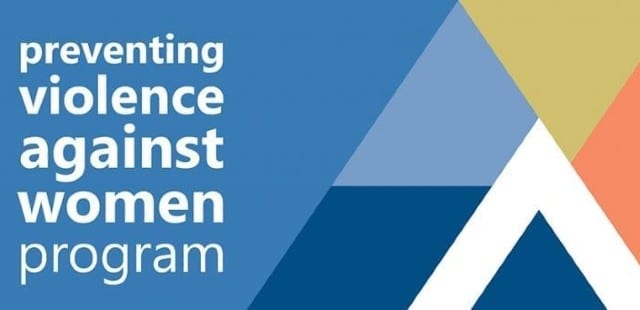Melbourne University report finds PVAW program beginning to make a difference in Diocese and beyond

By Chris Shearer
10 May 2021
The Diocese of Melbourne’s Preventing Violence Against Women Program (PVAW) has helped faith leaders understand, take action to prevent and respond to violence against women, and contributed to a shift in culture, attitudes and practices across the Church, a new report has found.
Conducted by The University of Melbourne, the Evaluation of the Anglican Diocese of Melbourne’s Preventing Violence Against Women Program found that the PVAW program had created a number of positive cultural changes in the Diocese, including:
• Emerging signs that faith leaders were building connections and referral pathways with specialist family violence services.
• Strengthened the diocese’s commitment to gender equality and women’s leadership in the Anglican Church.
• Developed a culture of safety and care where people feel they can openly discuss issues relevant to violence against women.
• Helped encourage Anglican colleges to express a commitment to educating staff and students about violence against women.
• Demonstrated early signs of a two-way learning process between the program and Anglican agencies.
• Highlighted the diocese as a leader in faith-based prevention work in outside stakeholders.
• Contributed to the diocese developing a family violence policy package to support employees at the Anglican Centre experiencing family violence, with similar resources available for parish communities soon.
• Contributed to the evidence for prevention work through documenting and sharing resources and learnings across the prevention sector and with other faith communities both in Australia and internationally.
The evaluation highlighted the effectiveness of the program’s efforts to pursue holistic strategies that allowed faith leaders to engage with and participate in the program, its messaging that connected to Christian beliefs and values and its flexible coaching and support, which allowed parishes to take ownership of the program’s implementation.
It also noted that an internal mandate from within the diocese to create a cultural shift around preventing violence against women and productive governance, advisory and staffing structures contributed to the program’s success.
PVAW Program Manager Robyn Andréo-Boosey, who has been involved with the program since its beginnings in 2018, said she was encouraged by the findings of the evaluation.
“The evaluation is very valuable because it helps the diocese to know what has been effective in our prevention work and what we have to celebrate, whilst also highlighting areas for improvement,” she told TMA.
“I was very encouraged to see that the program has contributed to increasing a culture of safety and care in parishes where people feel they can openly discuss violence against women.
“However, what I found most encouraging was that our activities helped participants to move beyond this to being part of shifting the culture driving violence against women. They said program activities helped them to personally reflect on and change their own personal use of language or expressions that might inadvertently reinforce gender stereotypes and speak to their partners about gendered norms and behaviours they would like to change in their relationships. They also said they helped them to challenge attitudes, beliefs or jokes that reinforce gender inequality and gender stereotyping and feel more confident to speak up when women’s perspectives are dismissed.”
Ms Andréo-Boosey added that having the evaluation done by the University of Melbourne ensured that the findings were both robust and credible, which in turn would be “a gift” to organisations both faith-based and secular, here and internationally.
“There is very limited evidence about what works to equip church leaders in this space, so a lot of the program was experimentation based on advice of clergy and lay leaders in the taskforce and learning we have from other places. I am pleased that we have not only had impact but that we also have a clearer idea of what contributed to successes and what the barriers are,” she said.
“We hope it can be a resource to secular family violence specialist services and prevention organisations to help them better understand the Church and its potential to bring about positive culture change. Secular family violence organisations can sometimes feel nervous about the Church’s role, given our failures in this space, so it is particularly important to share what the Church has to offer alongside the professionals.”
The evaluation did find that there were several barriers to implementation that could be addressed in future, including:
• Competing demands faced by busy clergy and lay leaders.
• Challenges engaging socially and culturally diverse communities across the diocese.
• Opposition to the program by some constituents who feel confronted by or deny the prevalence of violence against women.
• Challenges navigating theological tensions pertaining to differing interpretations on the Bible’s stance on gender equality and the role of men and women.
The evaluation’s authors offered a number of recommendations to address these barriers, such as greater consultation with faith leaders from socio-cultural communities, further support for faith leaders to overcome opposition and using the lessons of 2020’s lockdowns to increase online engagement with the program.
Furthermore, the authors suggested further “capacity building” among faith leaders could be achieved by considering changes to the training content to address gaps in participants’ knowledge, taking on feedback from pilot programs, collaborating with more male faith leaders to develop ways to make men “champions for preventing and responding to violence against women” and considering ways in which faith leaders could be better supported to manage pastoral care challenges, including engaging with perpetrators.
Ms Andréo-Boosey said she would use this insight into implementation barriers and recommendations to reflect on how the program can move forward, adding that the issues dominating the headlines so far this year have made the continued work of the program as important as ever.
“This year we have seen another large scale outpouring of women’s stories and experiences of violence and abuse,” she said.
“The high prevalence of violence against women is an uncomfortable truth. We don’t always realise how common violence against women, particularly family violence, is because it is hidden. We don’t always recognise it because we can think of it as just physical, when it takes many forms. We can also overlook it because people don’t always feel safe to open up about what is happening to them because they don’t think they will be believed or supported.
“That is why it is so important for church leaders to break the silence and signal that there is no excuse for someone to use abusive or controlling behaviour. We need to send a clear message that it is OK to talk about this and that victim survivors will be believed and supported. Parishes starting to communicate this have seen parishioners starting to open up and share their stories of violence and abuse – some for the first time.”
On 15 May, the PVAW Program will be hosting a forum at Camberwell Girls’ Grammar School to equip Anglicans to take action on response and prevention. The forum will feature the evaluation report launch, stories and lessons from parishes taking action, interactive workshops and practical resources. Book here: https://www.trybooking.com/BOXZN







